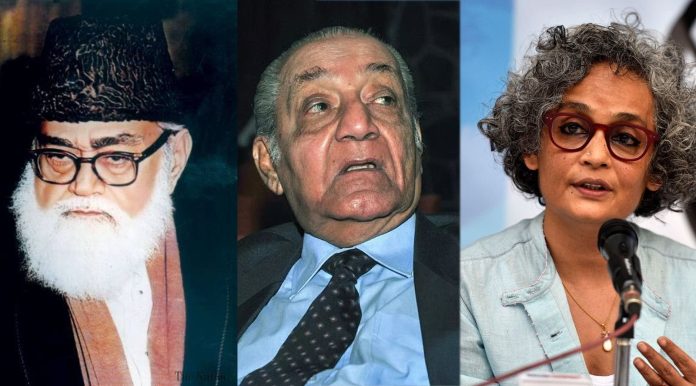Srinagar — In a controversial move, the Jammu and Kashmir government on Wednesday ordered a ban on 25 books written by a range of prominent authors and scholars, alleging that these works propagate terrorism, distort historical facts, and incite secessionist sentiments.
The Home Department of J&K, invoking Section 98 of the Bharatiya Nyaya Sanhita, 2023, issued a formal notification (S.O. 203) directing the forfeiture of these publications. The government claimed that the banned books pose a serious threat to the sovereignty, integrity, and public order of the Union Territory.
The list includes renowned names such as Islamic thinker Syed Abul A’la Maududi, constitutional expert A.G. Noorani, acclaimed author and activist Arundhati Roy, political scientist Sumantra Bose, historians Ayesha Jalal and Sugata Bose, and several Kashmiri academics including Hafsa Kanjwal, Ather Zia, and Essar Batool.
According to the notification, intelligence inputs and investigations revealed that the banned books played a significant role in the “radicalization of youth,” portraying militants as heroes, distorting historical narratives, and spreading anti-state sentiment under the guise of academic or political discourse.
“This literature,” the notification stated, “promotes a culture of grievance, victimhood, and terrorist glorification. It systematically misguides youth, vilifies security forces, and encourages religious radicalization and alienation.”
Among the banned titles are:
Al Jihad fil Islam by Maulana Abul A’la Maududi
Azadi and Kashmir: The Case for Freedom by Arundhati Roy
The Kashmir Dispute 1947–2012 by A.G. Noorani
Colonizing Kashmir by Hafsa Kanjwal
Resisting Disappearance by Ather Zia
Do You Remember Kunan Poshpora? by Essar Batool and others
Mujahid ki Azaan by Imam Hasan al-Banna, edited by Maulana Enayatullah Subhani
Contested Lands and Kashmir at the Crossroads by Sumantra Bose
Kashmir and the Future of South Asia by Sugata Bose and Ayesha Jalal
Other banned works include titles by international authors like Piotr Balcerowicz, Victoria Schofield, and David Devadas, which examine the Kashmir conflict through academic, legal, and human rights lenses.
The government alleges that many of these books have been circulated within academic and activist circles in J&K and have contributed to what it calls a “climate of resistance” among the youth. Authorities argue that these works use emotional and ideological narratives to promote separatism and justify violence against the Indian state.
The ban has sparked concerns among academics, rights activists, and civil society members who view it as an assault on intellectual freedom and dissent. Critics argue that suppressing books—especially those grounded in research and personal testimony—sets a dangerous precedent for democratic discourse and academic freedom in India.
No official response has yet been issued by the authors named in the ban, but reactions are expected in the coming days.




